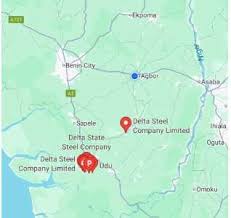Across Nigeria, farmers face a hard choice. Chemical fertilizers boost yields quickly, but they are expensive and damage the soil over time. Organic manure is cheaper, safer, and eco-friendly—but many farmers doubt whether it can produce enough food. At the Delta Steel Company (DSC) estate, located at Ovwian-Aladja in the Western Niger Delta, a group of farmers set out to find answers for themselves.
With support from Advocates for Community Alternatives (ACA), they designed a simple experiment. Crops were grown with different amounts of organic manure—5, 10, and 15 tons per hectare—and compared with crops grown using chemical fertilizers alone. For the farmers, it was a chance not just to be taught, but to see and measure the difference with their own eyes.
The results were clear. Crops treated with well-prepared organic manure produced stronger yields than those grown with chemicals alone. The soil also showed signs of recovery: better structure, improved fertility, and more resilience against erosion. For farmers used to watching their land grow weaker year after year, the change was encouraging.
Still, the experiment revealed an important lesson—balance matters. Too much manure could cause odor or waterlogging, while too little would not make a difference. The key was to know the right type, the right amount, and the right timing. As one participant put it: “Before, I thought only the fertilizer in the white bag could make crops grow. Now I see that what comes from our animals can feed the soil too.”
For the DSC farmers, this small pilot was more than a test of manure. It was a glimpse of a future where farming is affordable, sustainable, and healthier for the land. By embracing organic methods, they can reduce dependence on costly chemicals, protect their environment, and still feed their families.
The lesson is simple but powerful: what we once saw as waste can become a resource. And when farmers themselves lead the way, the solutions are not only practical—they are lasting.

Recent Comments